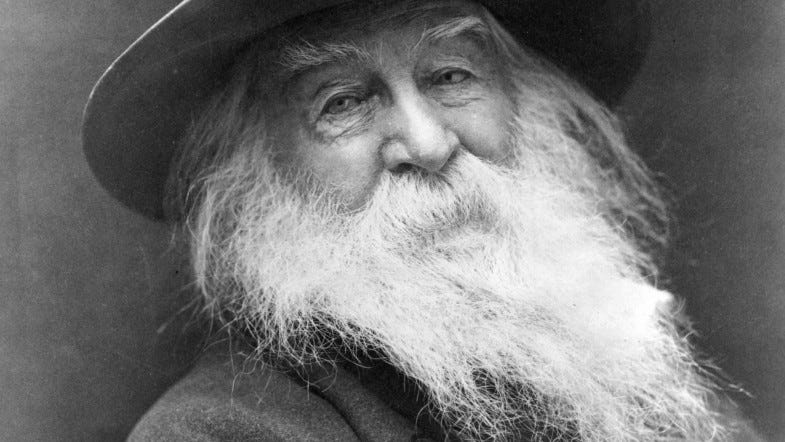I’ve shaved my beard.
Well, part of it. Gone back to the goatee. Why? Not sure. Just woke up and grabbed the razor. It was a shift, a psychological adjustment, a needed change. It took three days for anyone to notice. Even my wife.
“You change and shave and let it grow all the time,” she said.
It’s true. I have gone from the longer beard to the shorter, to the goatee, and back again more than a few times.
The beard is a strange thing. It’s associated with masculinity, with dominance, with power. That’s true traditionally, studies have shown. But then there was the Covid beard, a collective culture growth born out of boredom and the temporary end to being social. Throw a little laziness in there, too. An informal survey on social media during the heart of the pandemic found that many men at least partially altered their grooming habits during isolation, growing a full beard or at least skipping the beard trim. Other men just didn’t like shaving and were using Covid time to play around with alternative beard looks.
Then came Coach Beard.
The “Ted Lasso” character with the zen-like quality. One blogger called him Ted’s Jiminy Cricket. Coach Beard was a stoic Ted supporter, a quiet shaman, intelligent and highly aware. The other characters in the show revered Coach Beard, the one whose facial hair appeared to be part of his powers. I’m surprised there wasn’t an episode when all the football team members grew beards in a show of reverence.
The beard, no matter now you grow it or trim it, holds a level of perceived toughness. But there’s another side. Psychologists say men grow them and shave them when they are going through some sort of emotional change—good or bad, troubled for heroic. The growing or shaving of facial hair, they say, can be a kind of personal reboot.
I few years ago, I wrote a piece for Medium about a change in my writing life, a shift artistically that came at the same time I was growing my beard. Coincidence? I didn’t think so. There was certainly a connection. Change was key. And the beard was the outward symbol of that change. (Here’s the story: Medium)
But what’s going on now? Why the trim back of the facial hair?
If I stay with the theme of artistic change, then maybe it’s all happening again for a reason. My writing life has taken to short stories, a genre I haven’t worked in much. Personal essays, yes. But not fiction in short form. My goal this winter is to complete a compilation of short stories, some I began many years ago. At least one has been recently published. (“Desert Venus” at Write Launch) I’m reading a lot of short stories, reading like a writer, as they say, dissecting and analyzing. The greats are great for a reason, studying their works is a joy.
And also daunting.
So, here I am reading Raymond Carver, and George Saunders, and Flannery O’Connor, and Sam Shepard, and inching forward on my own stories. At the same time carefully trimming around the chin and shaping words and sentences into what I hope I want to say.
Change is the constant. It is the only thing that is. Growing or shaving a beard is proof. And if you can’t grow or shave one, maybe it’s a change in hairstyle or hair color that signals a shift in your personal zeitgeist. Maybe it’s a new wardrobe, a new car, a new commitment to health or exercise, a return to nature, to meditation. Change is the thread. And it should never be underestimated or dismissed. Change is your mind, your deep self reminding you that reinvention, even in the simplest of ways is one of the beauties of being human.
David W. Berner is the author of the award-winning novella, The Islander. (Outpost19 Books) and the forthcoming personal narrative Daylight Saving Time: The Power of Growing Older. (Collective Ink Books)





Soon after I declared Book #5 my last, I donated my very large desk from my home office and installed a small one. The antithesis of being a writer? Nope, not for me. I'm still writing in my head as I recommit to health, writing in my journal, and scribbling a poem now & then. Thanks for the reminder that 'change' is natural, inevitable, and even welcome at times.